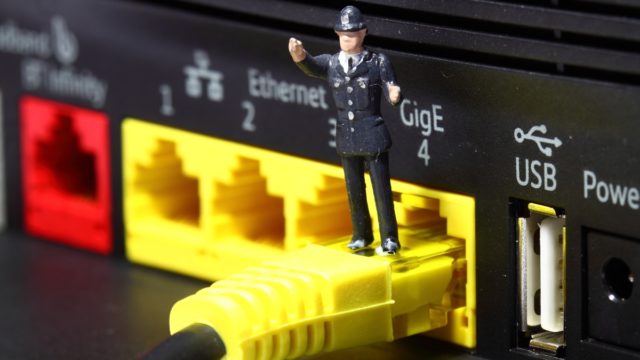Free check to see if your router has been hacked by criminals

The internet is a crazy place. Not only do marketers and advertisers follow your every move, but there are also hackers and scammers lurking in the dark corners, ready to pounce on your personal information.
At least marketers and advertisers want to make money off of you. The hackers and scammers we’re talking about want to flat-out steal your money by hijacking your personal information.
And as much as we don’t want to admit it, these hackers are more intelligent than the average criminal. They use clever tactics to trick you into clicking links with the potential to crash your system, spread malware and even steal your personal information. Tap or click for eight of the biggest scams you need to watch out for.
And keep reading to find out why a VPN is your best bet when it comes to keeping what you do online private.
What the heck is DNS Hijacking?
One of these tricks is known as “DNS hijacking.” Sound complicated? Yes, it’s a little bit tricky. Let me explain.
A DNS, or domain name system, is often called the phone book for the internet. It translates names of websites, like Google.com, to an IP address, like 74.125.239.2. The communication between the two is critical to direct web traffic correctly.
These clever hackers insert rogue DNS servers, so your traffic is directed to unsafe servers instead of the secure servers your internet service provider gives you. This means cybercriminals can redirect you to fake versions of websites you’re attempting to visit.
For example, if your router’s DNS settings have been hijacked, each time you visit your bank’s website, you’ll be redirected to a phishing website instead.
Criminals can also use DNS hijacking to modify ads you see while browsing. Instead of the regular ads you should be getting, they’re replaced with inappropriate or malicious ones. This opens you up to a whole world where all your personal information is vulnerable, and so is your system.
How to check your router for hackers and criminals
This helpful tool will help keep your internet connection safe from outside dangers. All you have to do is head to the home page. Your details then automatically load.
The site will tell you if your DNS server is the one making requests on your behalf and if the server has been reported for suspicious activity, who the IP owner is and what the Reverse DNS is.
Test your router using the free Who is My DNS?
Here’s how it works
When you visit Who is My DNS, it identifies the DNS server and IP address that requested on your behalf. Who is My DNS then scans its database to see if that DNS server is recognizable or has been reported for any suspicious activity.
Once the results load, check to see if the DNS server correlates with your Internet Service Provider. If it doesn’t, your router may have been hijacked.
Why would you want to use this tool?
WhoismyDNS.com makes checking your security quick and easy:
- Web-based – This tool is totally web-based. This means there’s nothing to download! Just visit the webpage to start testing.
- Checks your DNS settings – This free tool will check your router’s DNS settings for any signs of DNS hijacking. If your router has been hijacked, hackers can route your traffic to spoofed versions of websites. So it’s important to double-check your router for signs of tampering.
Bonus: Try Kim’s VPN pick for free
Every time you use the internet, big tech companies track and mine your data. But with our sponsor, ExpressVPN, your activity remains anonymous and more difficult to trace. Plus, ExpressVPN won’t slow your connection down.
If you don’t like the idea of tech companies exploiting your personal information, visit ExpressVPN.com/KIM right now, and you can get three extra months of ExpressVPN for free.
Tags: advertisers, criminals, cybercriminals, DNS, ExpressVPN, Google, hackers, hijacking, internet, malware, marketers, personal information, phishing, router, scammers, scams, security, server, servers, tool

